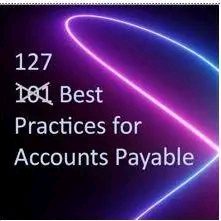6 Common Budget Mistakes You Can’t Afford to Make

Creating and sticking to a budget is a fundamental financial skill that can help you achieve your financial goals and secure your future.
However, many individuals unknowingly make budgeting mistakes that can hinder their financial progress.
List of 6 Common Budget Mistakes You Can’t Afford to Make
In this article, we’ll highlight six common budget mistakes that you can’t afford to make and offer insights on how to avoid them.
1. Not Tracking Expenses
One of the most significant budgeting mistakes is failing to track your expenses diligently. Without a clear understanding of where your money is going, it’s challenging to create an effective budget.
To avoid this mistake, start by tracking every expense, no matter how small, for at least a month. This will help you identify spending patterns and areas where you can cut back.
2. Neglecting an Emergency Fund
Many people prioritize paying off debt or investing over establishing an emergency fund. While those are essential financial goals, an emergency fund serves as a financial safety net.
Not having one can lead to financial stress if unexpected expenses arise. Aim to build an emergency fund with at least three to six months’ worth of living expenses.
3. Underestimating Variable Expenses
Budgets often focus on fixed expenses like rent or mortgage payments and utilities, but variable expenses like groceries, entertainment, and dining out can add up quickly.
Underestimating these variable expenses can lead to overspending. To avoid this mistake, review past spending habits and allocate a realistic amount for variable expenses in your budget.
4. Overcommitting to Fixed Costs
Another common mistake is overcommitting to fixed costs, leaving little room for flexibility. This can make it challenging to adapt to unexpected changes in your financial situation.
Ensure that your fixed expenses are manageable, and consider reducing or renegotiating them if necessary.
5. Ignoring Financial Goals
Budgeting isn’t just about managing day-to-day expenses; it’s also about achieving your financial goals.
Neglecting to include savings for goals like retirement, a down payment on a home, or education can hinder your long-term financial security.
Allocate a portion of your income to savings and investments to work toward these objectives.
6. Failing to Review and Adjust
A budget is not a set-it-and-forget-it tool. Failing to review and adjust your budget regularly can lead to stagnation and missed opportunities for financial improvement.
Make it a habit to revisit your budget monthly or quarterly, and adjust it as needed to reflect changes in your income, expenses, and financial goals.
Frequently Asked Questions
How much should I allocate for variable expenses in my budget?
The amount you allocate for variable expenses depends on your unique financial situation and spending habits. Review your past expenses to determine a reasonable amount, and aim to stay within that limit.
Is it too late to start an emergency fund if I’m already in debt?
It’s never too late to start an emergency fund, even if you have debt. Having a small emergency fund can help you avoid going further into debt when unexpected expenses arise.
Should I prioritize paying off debt or saving for retirement in my budget?
Both are important goals, but it’s generally advisable to address high-interest debt first to reduce financial stress. Once you’ve paid off high-interest debt, allocate more funds toward retirement savings.
How can I make sure I stick to my budget over time?
To stick to your budget, track your spending regularly, set realistic goals, and stay disciplined. Consider using budgeting apps or tools to help you stay on track and hold yourself accountable.
Also Read: Planning Your Household Budget on a Limited Income





